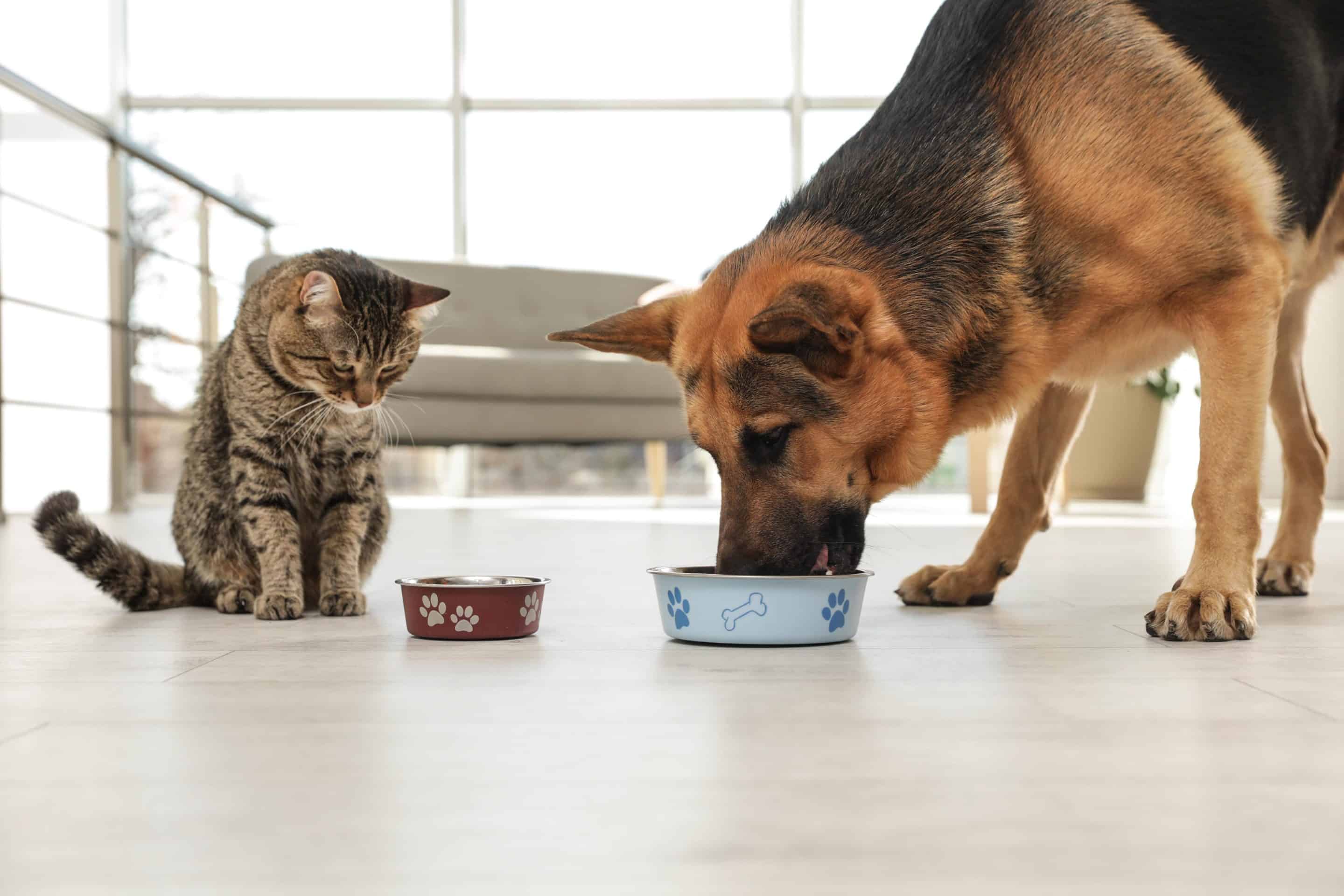Understanding Food Allergies and Sensitivities in Pets in Huntsville, AL

As pet owners, we cherish our furry companions and strive to provide them with the best care possible. At South Huntsville Veterinary Hospital, we understand that just like humans, pets can suffer from food allergies and sensitivities that can impact their health and happiness. Food allergies occur when the immune system mistakenly identifies a harmless substance as a threat, leading to a range of uncomfortable symptoms. Food sensitivities, on the other hand, may not involve the immune system but can still cause significant digestive issues. Understanding these conditions is vital to ensuring the well-being of your beloved pet.
What Foods Commonly Cause Allergies in Pets?
Certain foods are notorious for triggering allergic reactions in pets. Being aware of these common allergens can help you make informed choices for your furry friend:
- Beef: One of the most common allergens, beef can provoke severe reactions in sensitive pets.
- Chicken: Like beef, chicken is frequently included in pet diets and can lead to allergic responses.
- Dairy: Many pets are lactose intolerant or allergic to dairy products, causing digestive issues.
- Wheat: A common ingredient in many pet foods, wheat can trigger allergies in dogs, although much less frequently than meat proteins.
- Soy: Some pets may develop sensitivities to soy products, leading to various health issues.
These foods can trigger allergic reactions due to their protein structures, which some pets’ immune systems mistakenly recognize as harmful. It’s essential to read ingredient labels carefully and monitor your pet’s diet.
What are the Signs of Food Allergies in Pets?
Recognizing the signs of food allergies in your pet is crucial for timely intervention. Look out for the following symptoms:
- Itching and Scratching: Excessive scratching or biting at the skin.
- Skin Irritations: Red, inflamed, or flaky skin.
- Gastrointestinal Issues: Vomiting, diarrhea, or abnormal stool consistency.
- Ear Infections: Frequent ear infections or inflammation in the ears.
If you notice any of these signs, it’s important to consult a veterinarian for proper evaluation and preventative care.
What is the Difference Between Food Allergies and Food Sensitivities in Pets?
Understanding the difference between food allergies and sensitivities can help in managing your pet’s health effectively:
- Food Allergies: These involve an immune response, where the body reacts negatively to a specific food protein. Symptoms can be severe and include skin irritations and gastrointestinal distress.
- Food Sensitivities: While these can cause discomfort and similar symptoms, they do not involve an immune response. Instead, they often relate to difficulties in digesting certain ingredients.
How Can I Manage My Pet’s Food Allergies?
Managing your pet’s food allergies is a multi-step process that requires careful planning and consultation with your veterinarian. Ongoing veterinary support is critical in this process. Our team is dedicated to providing tailored recommendations for your pet’s specific needs. Consider the following strategies:
- Elimination Diets: This involves removing potential allergens from your pet’s diet and gradually reintroducing them to identify triggers.
- Consulting with a Veterinarian: Professional guidance is essential to create a balanced diet that meets your pet’s nutritional needs while avoiding allergens.
- Reading Ingredient Labels: Always check the ingredient list of pet foods to avoid known allergens.
- Gradual Food Introduction: If changing diets, do so gradually to monitor any adverse reactions.
Frequently Asked Questions About Food Allergies in Pets:
What causes food sensitivities in pets?
Food sensitivities can arise due to various factors, including genetics and diet. Some pets may be predisposed to digestive issues, while others might develop sensitivities over time due to exposure to certain ingredients.
How is a food allergy diagnosed?
- Elimination Diets: Removing suspected allergens for a period, usually 6-8 weeks.
Consulting with a veterinarian is crucial for accurate diagnosis and management.
What types of diets can be used to manage food allergies?
- Limited Ingredient Diets: Featuring a single protein source and limited carbohydrate options.
- Novel Protein Diets: Introducing proteins that your pet has never eaten before, such as duck or venison.
- Hydrolyzed Protein Diets: Featuring a hydrolyzed common protein such as chicken or beef, the key protein has been changed at the molecular level to be unrecognizable to the body as that particular protein.
These diets can help manage allergies while ensuring your pet gets the nutrition they need.
Caring for Your Pet with Allergies
Identifying and managing pet food allergies is essential for their health and well-being. If you suspect your pet may have food allergies or sensitivities, contact us to schedule an appointment at South Huntsville Veterinary Hospital in Huntsville, AL! Dr. Wesley Clendinen, Dr. Lauren Van Keuren, and our dedicated team are ready to assist you and your furry family members with personalized care and support.

Dr. Wesley Clendinen, DVM
Dr. Wesley Clendinen, DVM, is the owner and founder of South Huntsville Veterinary Hospital. A proud native of Tallahassee, Florida, Dr. Clendinen earned his B.S. in Animal Sciences with honors from Auburn University College of Agriculture and graduated magna cum laude from Auburn University College of Veterinary Medicine. With a background spanning private practice, academia, and research, he is dedicated to lifelong learning and upholding the highest standards of veterinary care.
